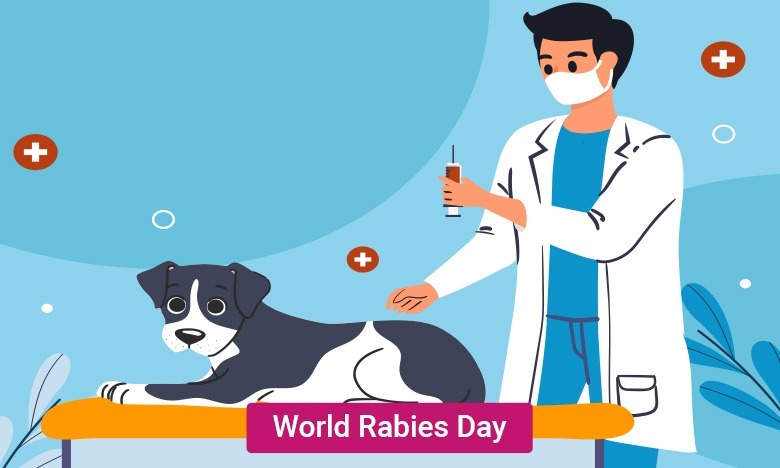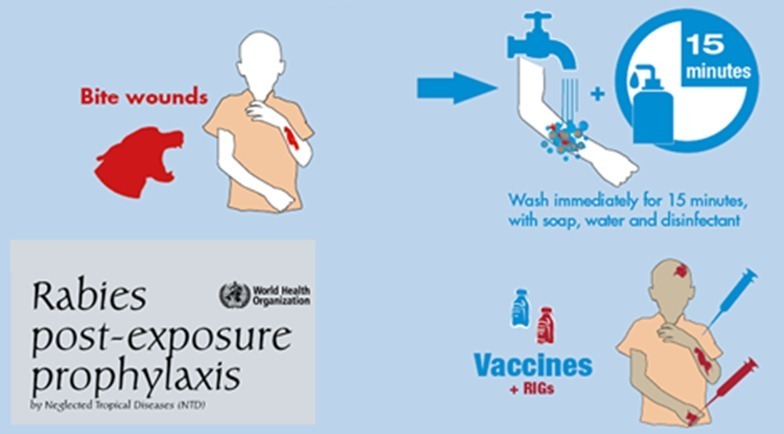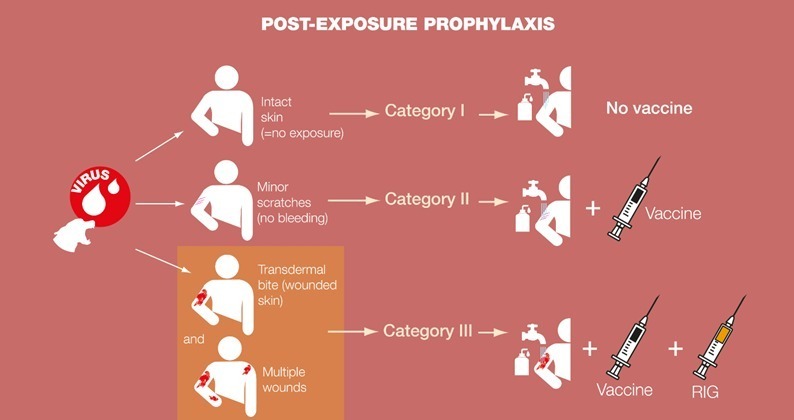The Silent Terror: Understanding Rabies and the Vital Role of Post-Exposure Prophylaxis

Rabies is a deadly viral disease that has haunted humanity for centuries. It’s a disease often associated with terror, fear, and panic due to its almost certain fatality once clinical symptoms appear. However, there is a glimmer of hope in the form of Post-Exposure Prophylaxis (PEP). In this blog, we’ll explore what rabies is, its transmission, symptoms, and most importantly, the critical importance of PEP in preventing a tragic outcome.
Transmission
Rabies can be transmitted to humans in several ways
Animal Bites: The most common mode of transmission is through the bite of an infected animal, especially dogs. Cats, bats, raccoons, cattle, skunks and foxes can also transmit the virus.
Scratches: If an infected animal scratches a person, and the virus-laden saliva contacts an open wound or mucous membrane, transmission can occur.
Saliva Contact: Direct contact with the saliva of an infected animal through broken skin or mucous membranes can lead to transmission.
There are reports of human-to-human transmission of rabies.
Symptoms in Rabies has two distinct phases
Prodromal Phase: This initial phase can last for several days and includes symptoms like fever, headache, and general malaise. As the virus progresses, anxiety, confusion, and agitation may also develop.
Acute Neurological Phase: This phase is characterized by severe neurological symptoms, including hallucinations, paralysis, and hydrophobia (fear of water). Once these symptoms appear, rabies is almost always fatal.
The Importance of Post-Exposure Prophylaxis (PEP)
Rabies is a preventable disease, even after exposure, thanks to PEP. PEP consists of a series of rabies vaccinations and, in some cases, Rabies Immune Globulin (RIG). Here’s why PEP is so crucial.
Prevents the Virus from Advancing: If administered promptly after exposure, PEP can stop the rabies virus from reaching the central nervous system. This gives the immune system time to mount a defence against the virus.
High Success Rate: When administered correctly and promptly, PEP is highly effective in preventing the onset of clinical rabies. The success rate is exceptionally high when initiated before symptoms develop.


Preventive Measures
While PEP is lifesaving, it is far better to avoid exposure to rabies in the first place.
Here are some preventive measures:
Vaccinate Pets: Ensure your pets, especially dogs and cats, are regularly vaccinated against rabies. This not only protects them but also reduces the risk of transmission to humans.
Avoid Stray Animals: Do not approach or attempt to pet stray animals, especially those showing unusual behaviour.
Properly Dispose of Animal Corpses: If you encounter a dead animal, do not touch it with your bare hands. Contact local animal control or health authorities for safe disposal.
Educate Yourself: Be aware of the signs of rabies in animals and avoid contact with any potentially infected animals.
If you get bitten by an animal, visit Ramaiah Memorial Hospital for further assistance.
Dr. Parinitha
Hospital Infection Control


